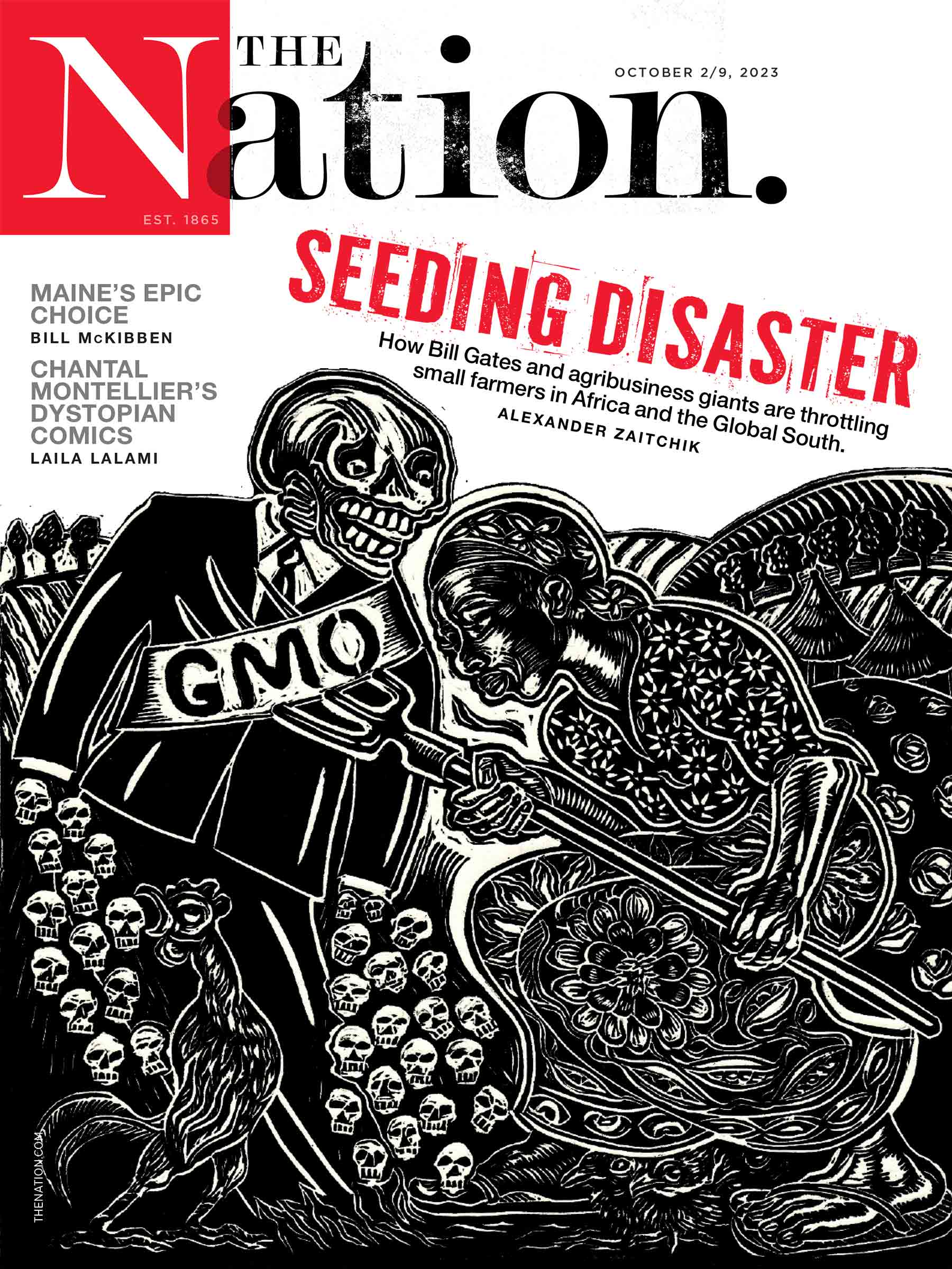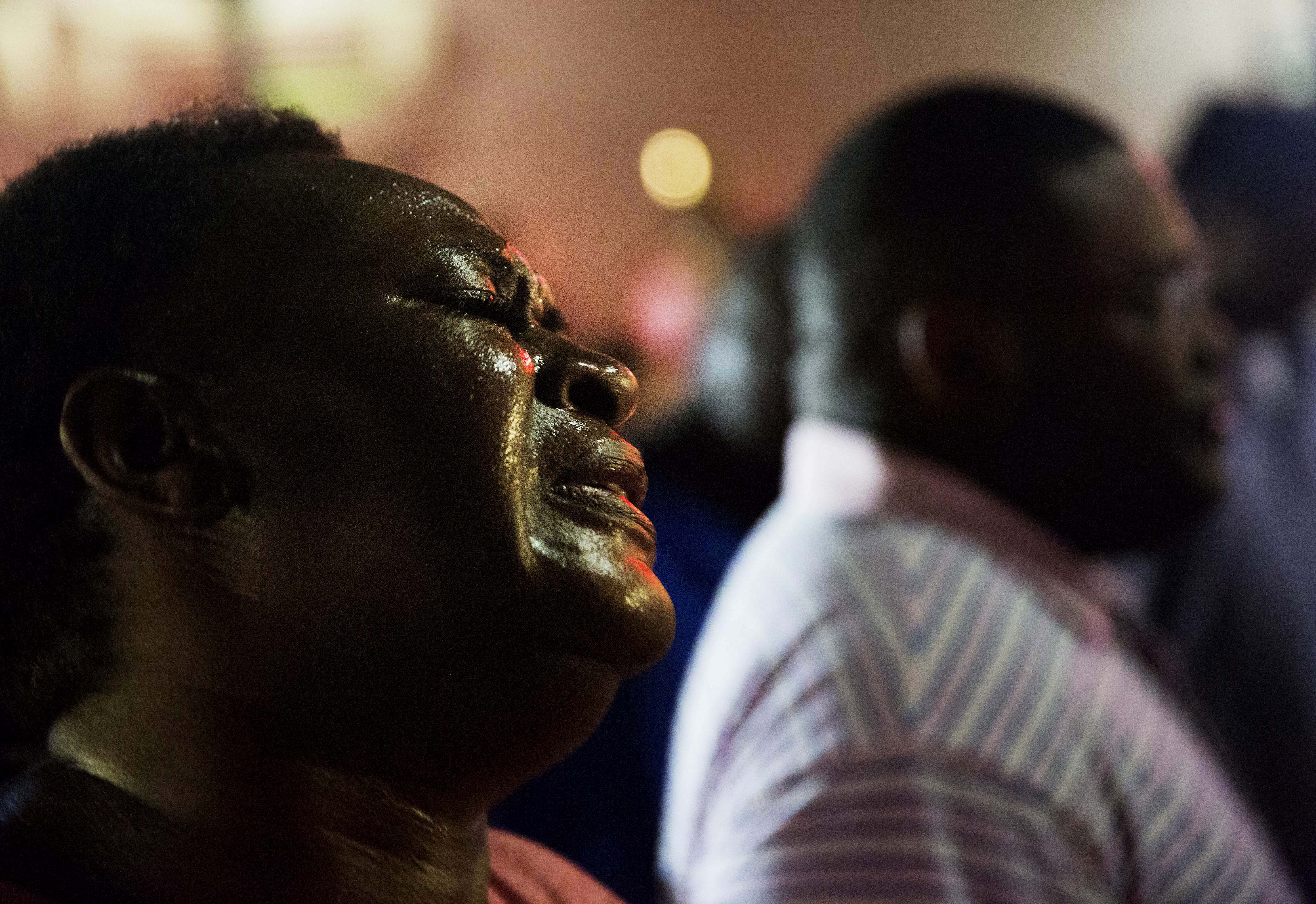
The Charleston Massacre and the Cunning of White Supremacy The Charleston Massacre and the Cunning of White Supremacy
He didn’t just target Denmark Vesey’s church—it was the anniversary of Vesey’s suppressed uprising.
Jun 18, 2015 / Greg Grandin
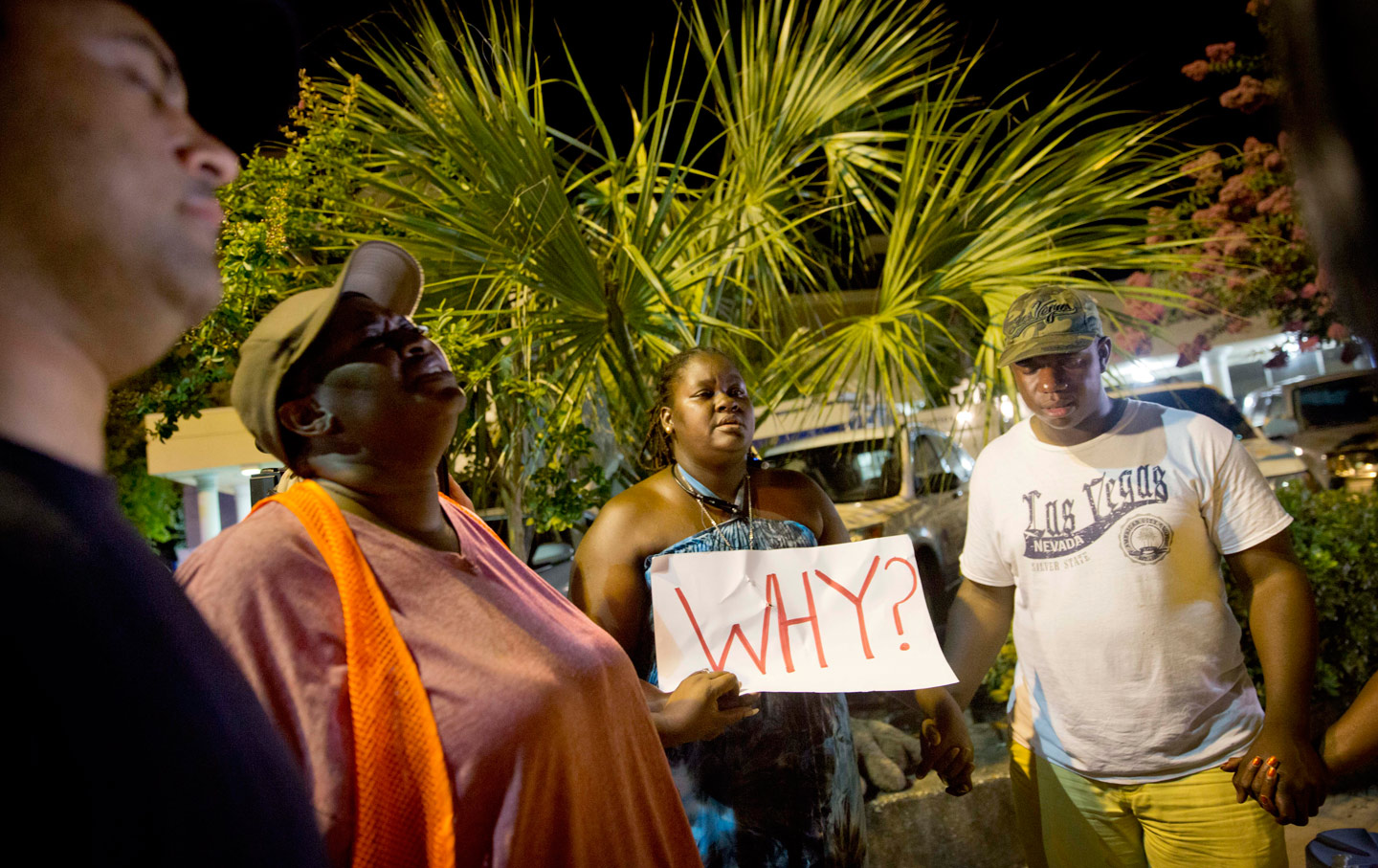
A Civil-Rights Champion Was Lost in the Attack on Charleston’s Emanuel African Methodist Episcopal Church A Civil-Rights Champion Was Lost in the Attack on Charleston’s Emanuel African Methodist Episcopal Church
The church has been linked for centuries to struggles against slavery and segregation and for economic and social justice.
Jun 18, 2015 / John Nichols
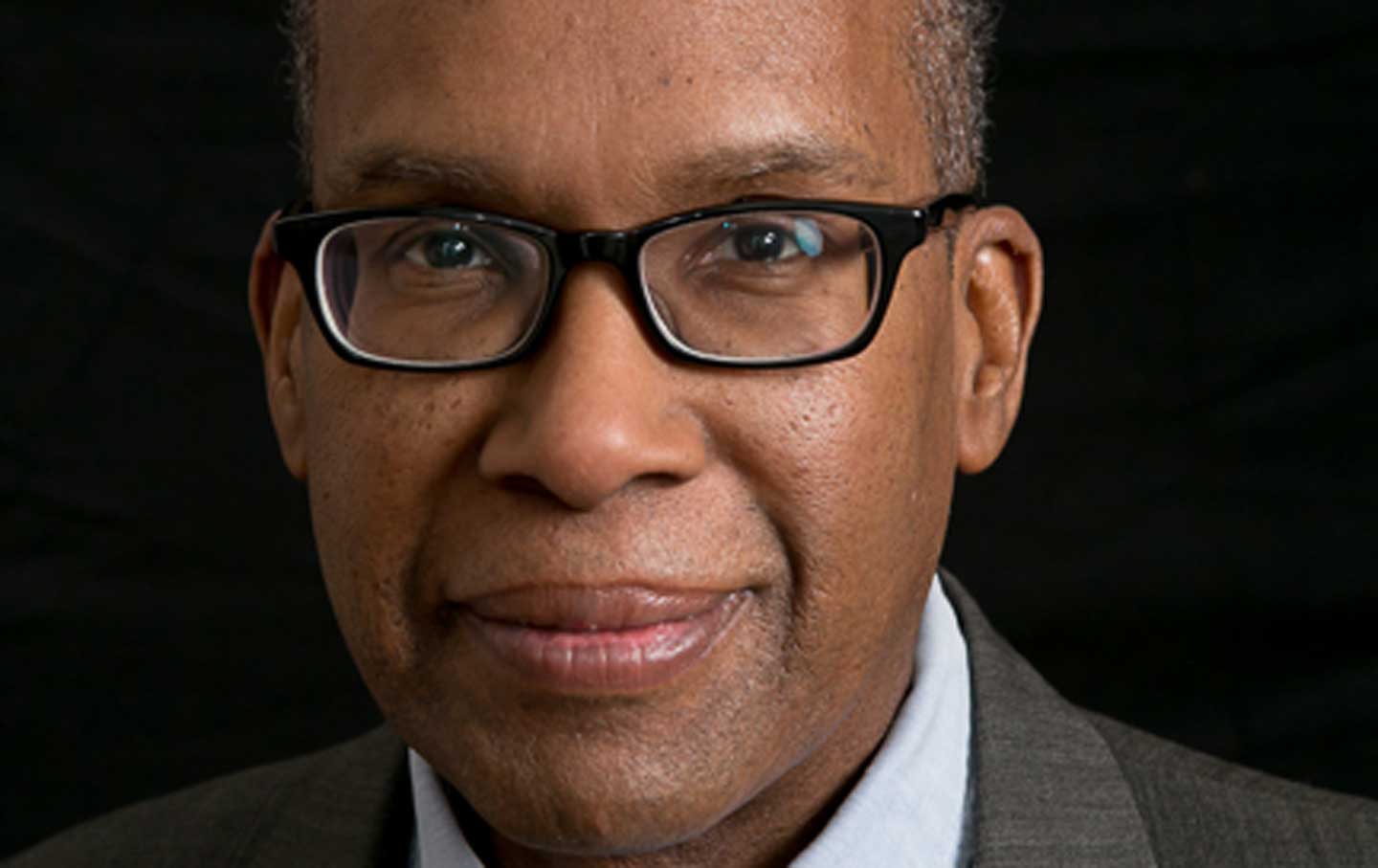
Shelf Life Shelf Life
“There is no such thing as not voting” is the faith that Darryl Pinckney grew up in.
Apr 22, 2015 / Books & the Arts / Ari Berman

Cornel West Is Not Mike Tyson Cornel West Is Not Mike Tyson
Dr. Michael Eric Dyson’s 10,000-word excoriation of Dr. Cornel West is highly personal. But there is a political fight thrumming beneath the surface.
Apr 20, 2015 / Blog / Dave Zirin
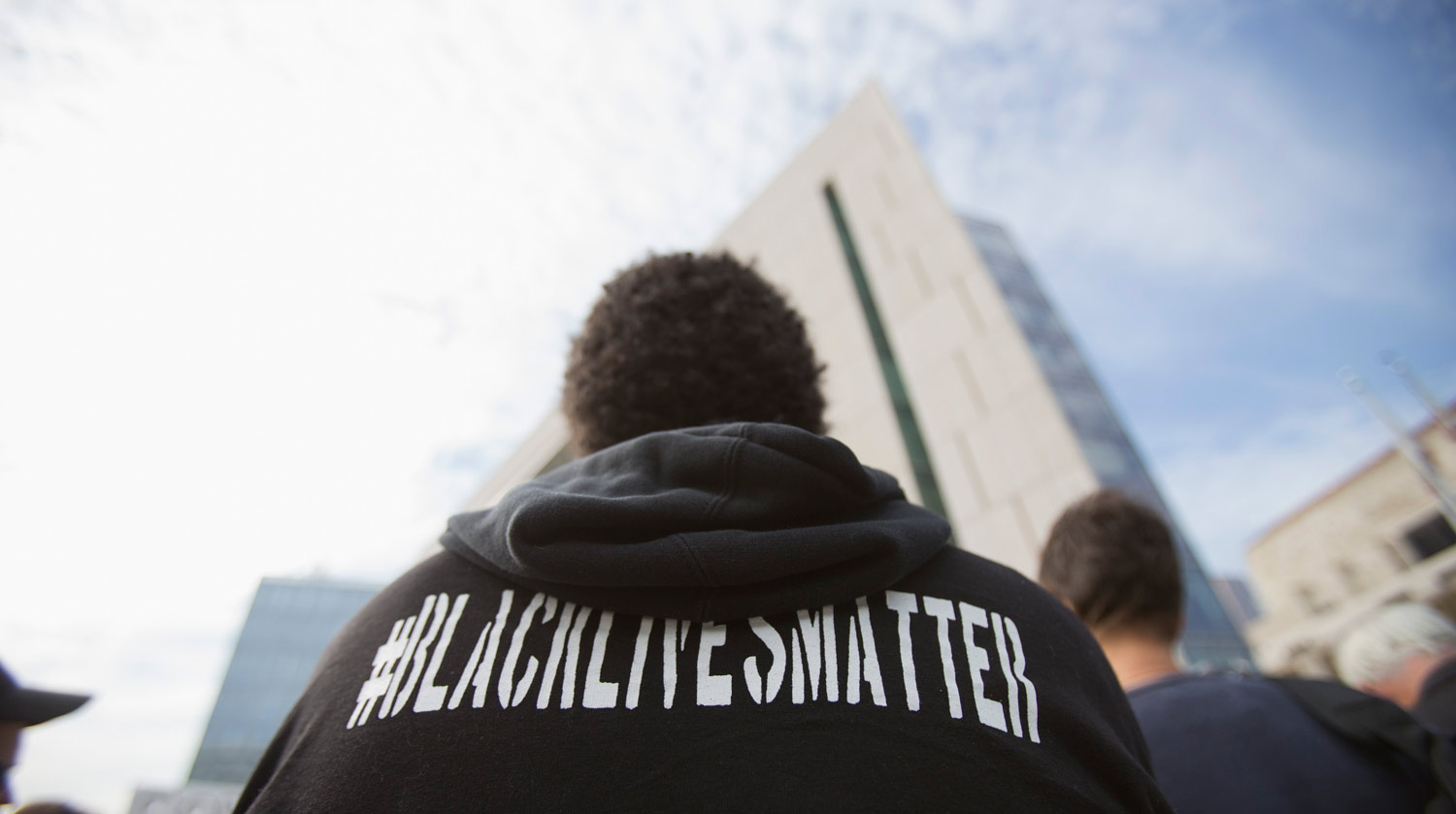
Toward a Third Reconstruction Toward a Third Reconstruction
A conversation on The Nation, race and history at the Schomburg Center for Research in Black Culture with Eric Foner, Darryl Pinckney, Mychal Denzel Smith, Isabel Wilkerson and Pat...
Mar 23, 2015 / Books & the Arts / The Nation
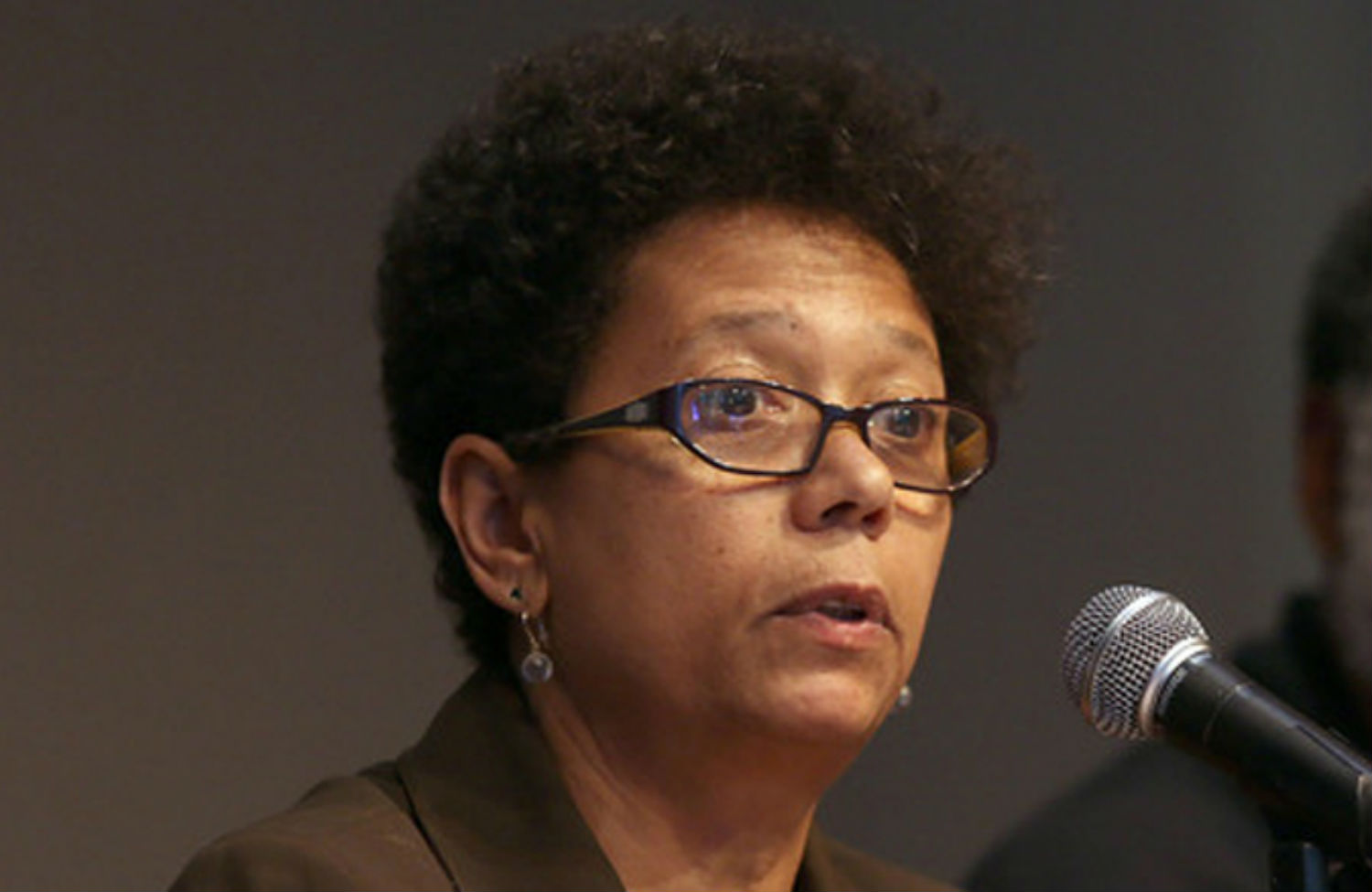
Dori Maynard and the Unfinished Business of Integrating the News Dori Maynard and the Unfinished Business of Integrating the News
Maynard was a champion of the idea that newsrooms needed to reflect the communities they covered and served.
Feb 26, 2015 / Blog / Dani McClain
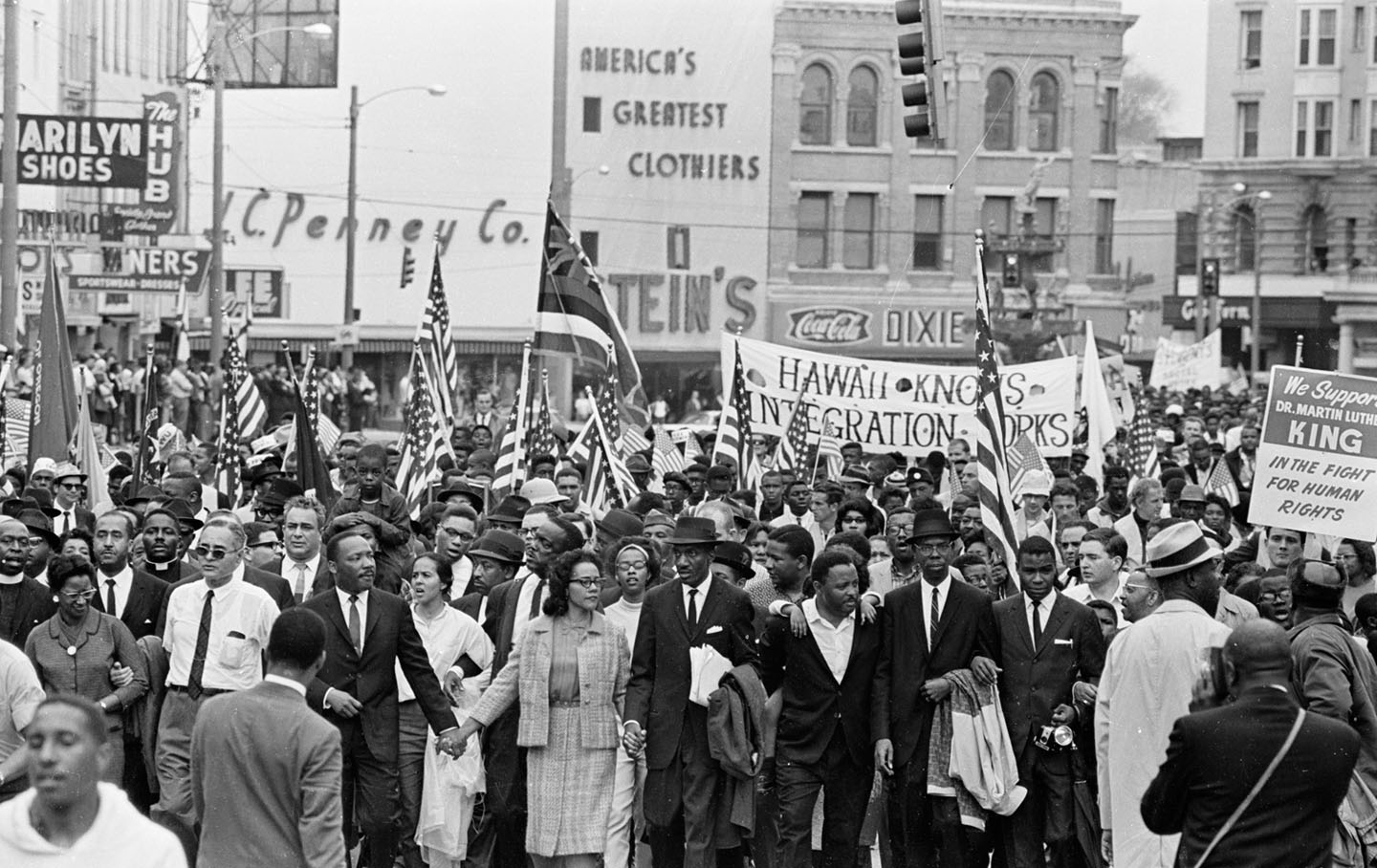
Fifty Years After Bloody Sunday in Selma, Everything and Nothing Has Changed Fifty Years After Bloody Sunday in Selma, Everything and Nothing Has Changed
Racism, segregation and inequality persist in this civil-rights battleground.
Feb 25, 2015 / Feature / Ari Berman
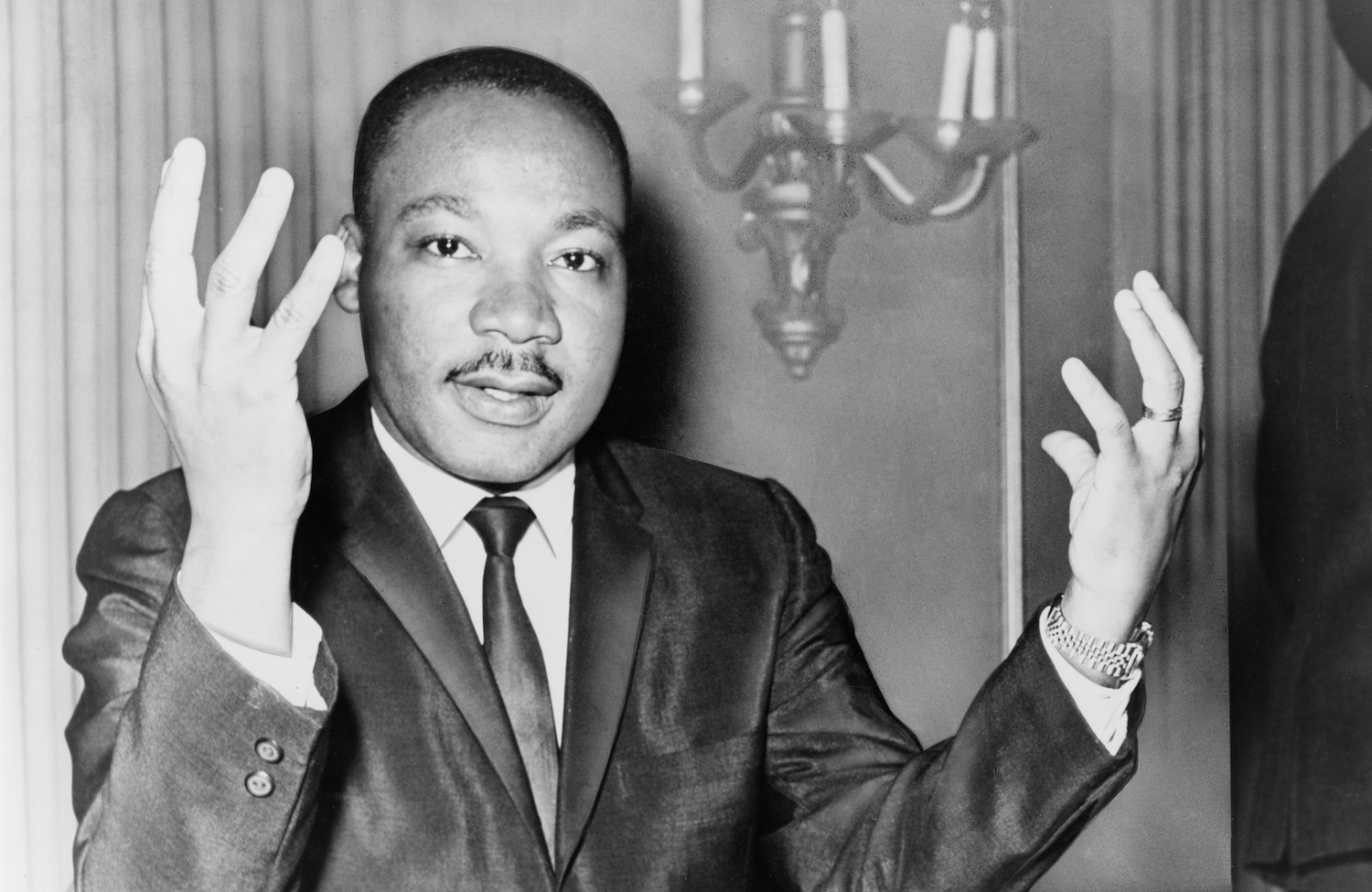
January 15, 1929: Martin Luther King Jr. Is Born January 15, 1929: Martin Luther King Jr. Is Born
From 1961 until 1966, King published in The Nation an annual report on the progress of the civil-rights movement during the previous year. In this installment, "Hammer of Civil Rig...
Jan 15, 2015 / The Almanac / Richard Kreitner and The Almanac
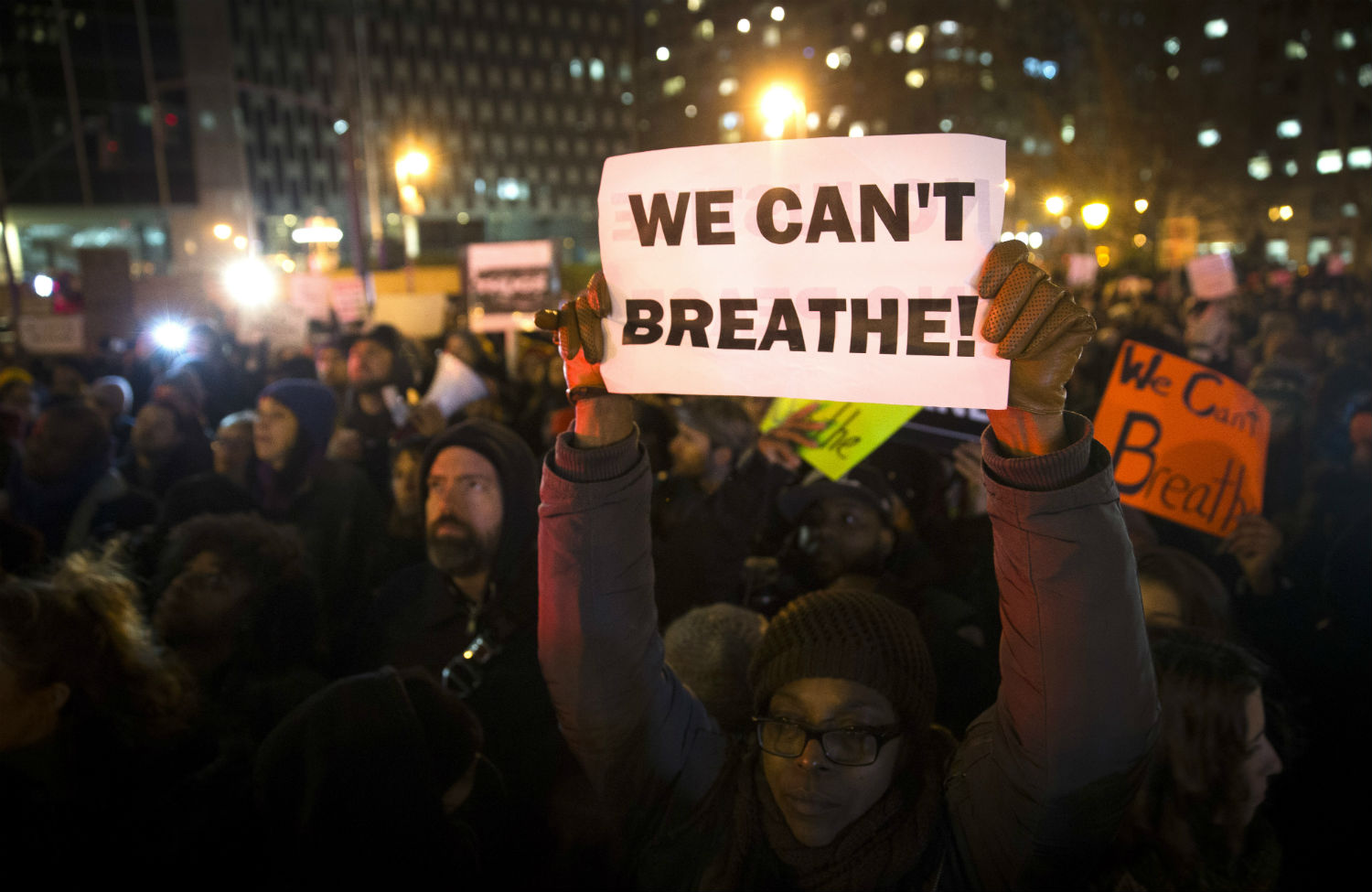
It’s 1963 Again It’s 1963 Again
Last August, some observers drew comparisons between the fatal shooting of Michael Brown by Officer Darren Wilson in Ferguson, Missouri, and the 1955 murder of Emmett Till. The announcement on December 3 that a Staten Island grand jury had chosen not to indict the policeman who choked Eric Garner to death might indicate that we are closer to 1963—when a series of devastating setbacks and the subsequent widespread outrage transformed the civil rights struggle. There was a perfect storm this past month: the continuing fallout from a grand jury’s decision not to indict Wilson in Ferguson; the identical outcome in the Garner case; a Cleveland newspaper’s efforts to discredit and sling mud at the parents of Tamir Rice, a 12-year-old boy also killed by police. This moment has the potential to catapult change, just as a series of events did eight years after Till’s death. The 1963 murder of four black girls at Birmingham’s 16th Street Baptist Church hit Americans square in the chest, reminding them of the Jim Crow system of justice in which black people had no rights that whites were bound to respect. The little girls were killed in September of that year in a place already dubbed “Bombingham” for the level of violent racist backlash against the city’s small progressive steps. Martin Luther King Jr. had been jailed there in the spring. Medgar Evers had been assassinated that summer in Mississippi. We find ourselves at a similar moment fifty years later—with “Again?” on our lips and a familiar feeling of horror at the video of Officer Daniel Pantaleo choking Garner to death, the unsparing force he uses against a man gasping over and over again, “I can’t breathe.” With the killings of Brown, Garner, Rice, unarmed New Yorker Akai Gurley and others, we are all reminded that black life is still devalued, and that police officers are too often treated as if they were above the rule of law. It is all coming so quickly: these announcements that a trial isn’t even necessary to determine a police officer’s guilt or innocence; these exonerations through other means. As a result, people are taking to the streets in Ferguson, New York City, Los Angeles, Atlanta, Boston, Cleveland and beyond. Please support our journalism. Get a digital subscription for just $9.50! To turn that outrage into progress, we should start to think big. A. Philip Randolph, Bayard Rustin, Ella Baker and other brilliant strategists of yesteryear knew that a successful struggle requires goals, not just reaction. Right now, activists from organizations like Millennial Activists United, the Ohio Students Association, Dream Defenders and Make the Road New York are demanding that the federal government prosecute police officers who kill or abuse people; that independent prosecutors be appointed at the local level and charged with prosecuting officers; and that the Justice Department deny funding to police departments that use excessive force or racial profiling. Several activists met with President Obama on December 1 to push these goals. This is beginning to look like playing offense. It’s worth noting that the public outcry in response to the rapid-fire events of 1963 is credited with making passage of the 1964 Civil Rights Act inevitable. The March on Washington for Jobs and Freedom had taken place not even a month before the Birmingham church bombing, showing the world that a critical mass of people were mobilized in the service of fundamental change. If the history of this country’s most revered period of revolutionary change is any guide—and if a policy program is developed to channel all this growing energy—then we’re just getting started.Dani McClain Read Next: Gary Younge on “black-on-black” crime
Dec 10, 2014 / Editorial / Dani McClain
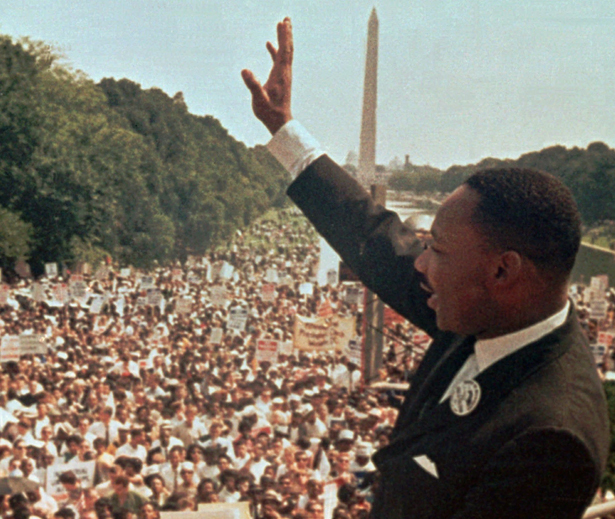
The Civil Rights Movement Came Out of a Moment Like This One The Civil Rights Movement Came Out of a Moment Like This One
If civil rights movement history is any guide, the protests against police brutality are just getting started.
Dec 4, 2014 / Blog / Dani McClain
